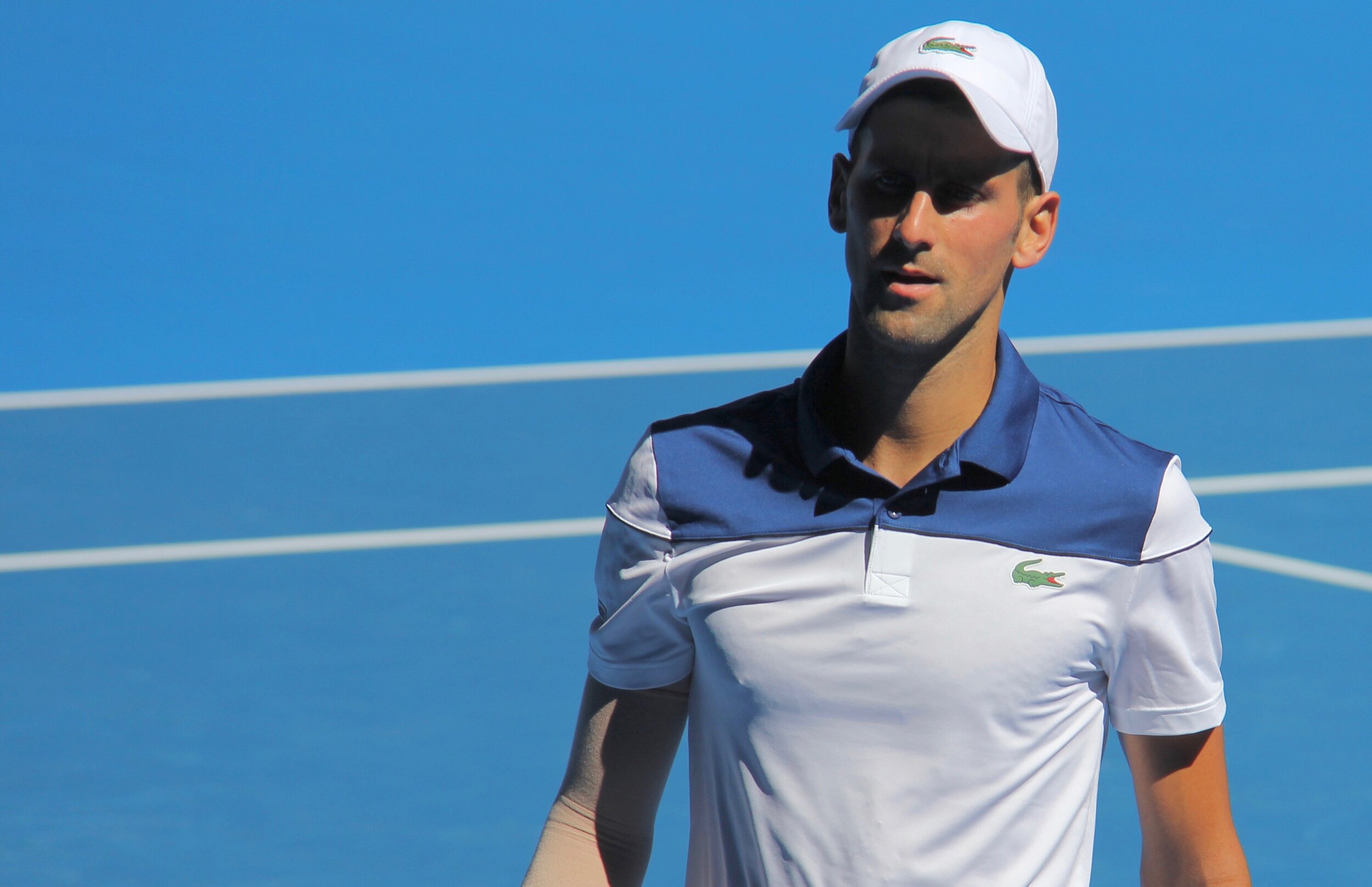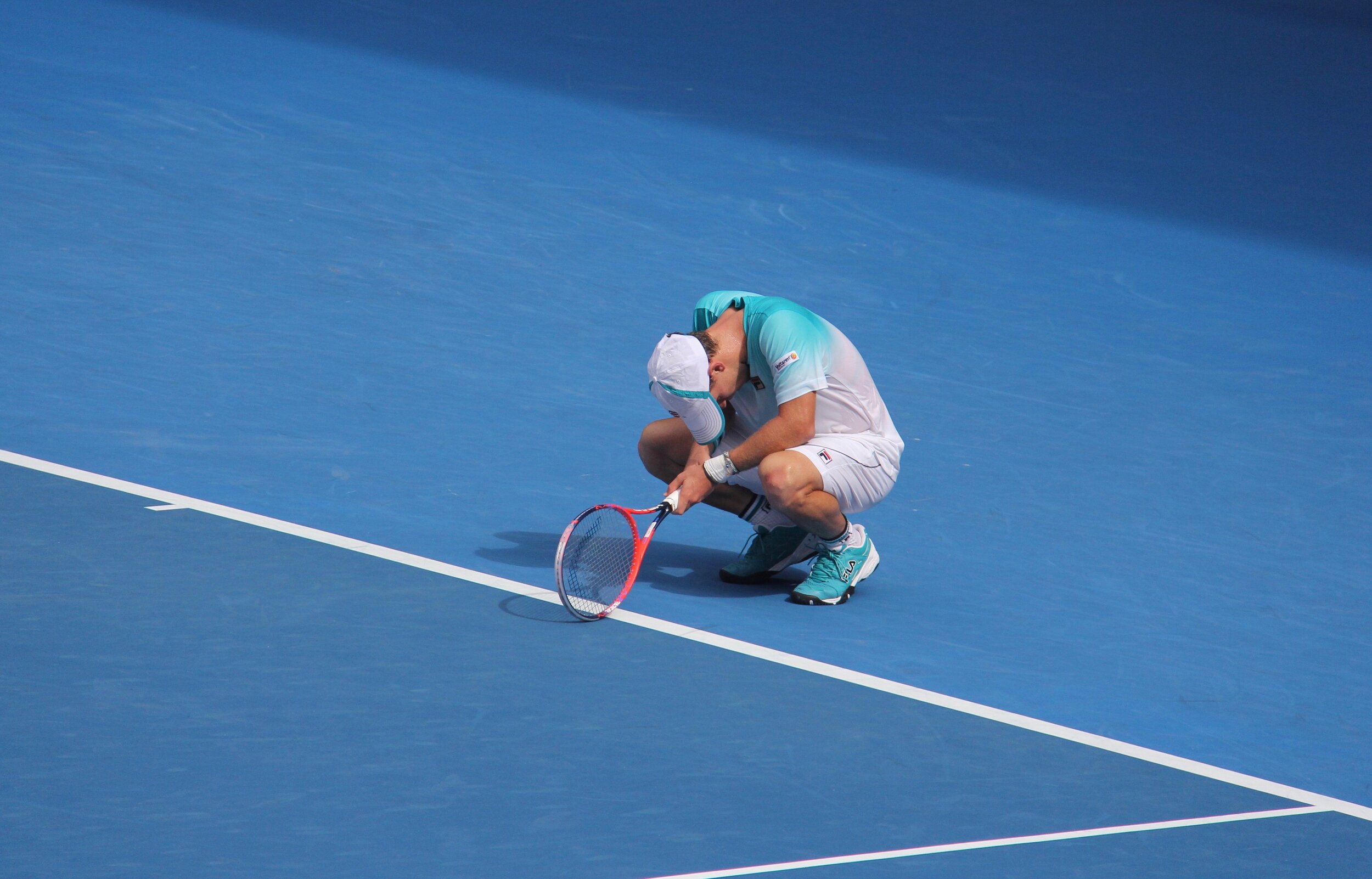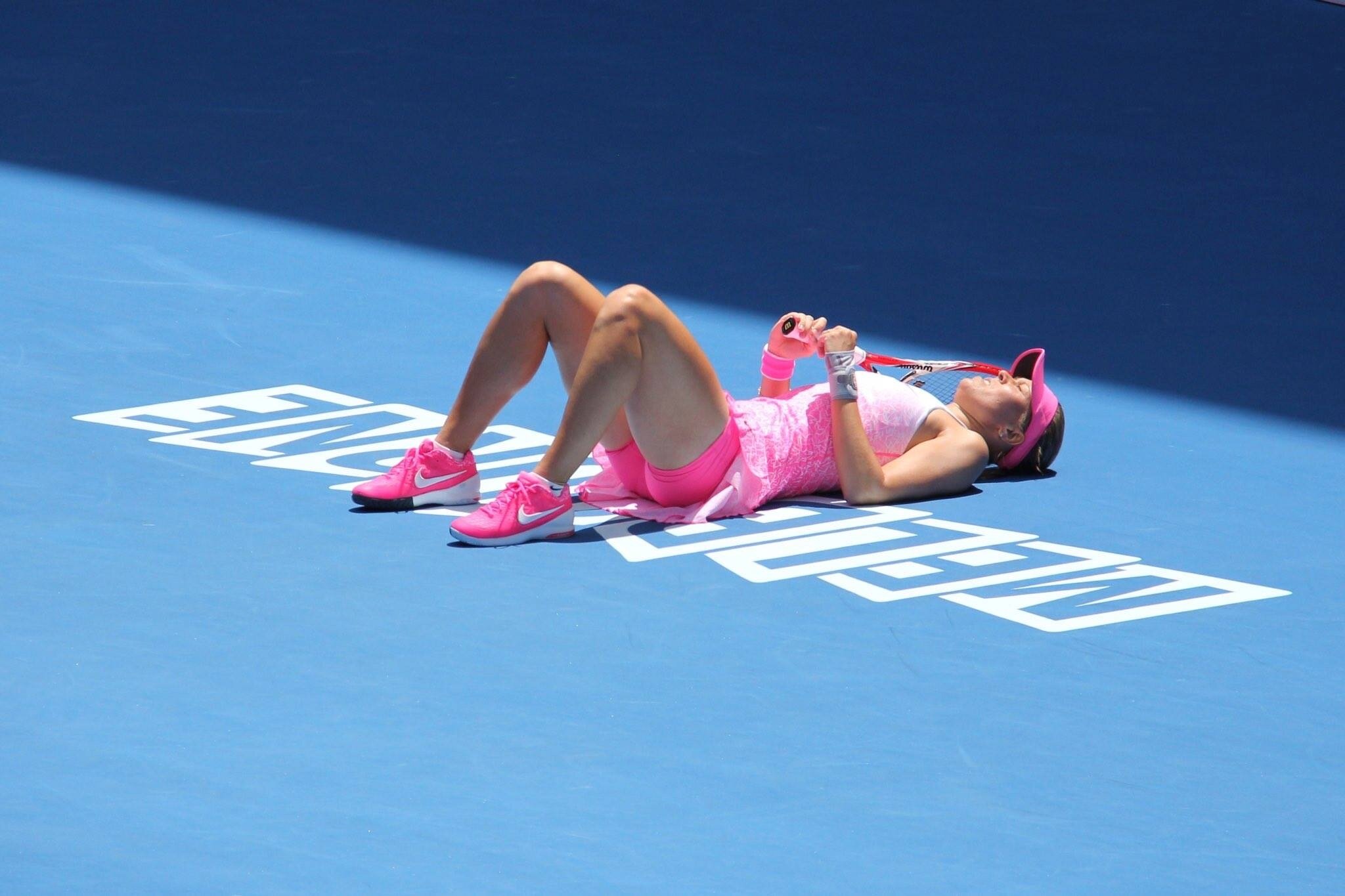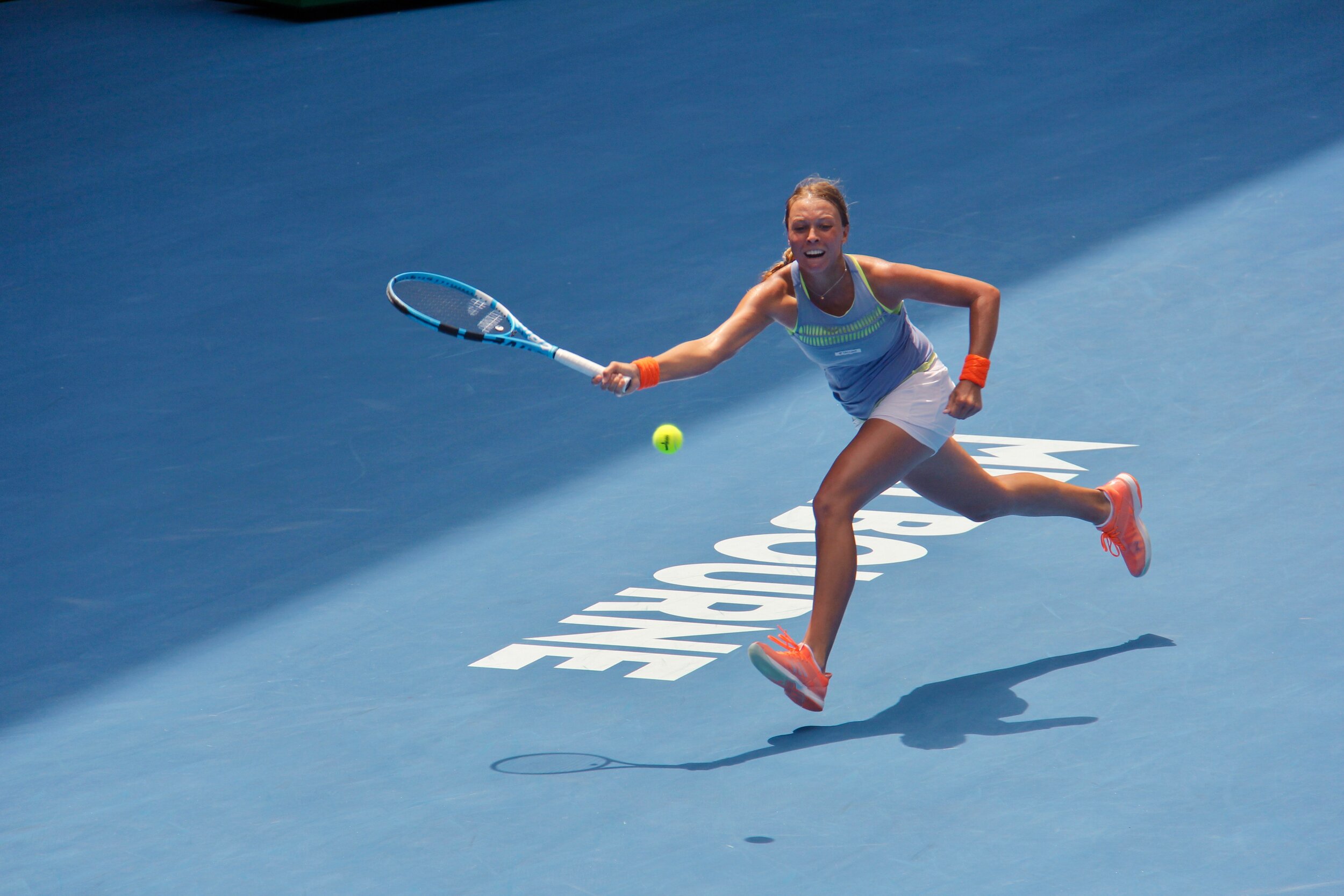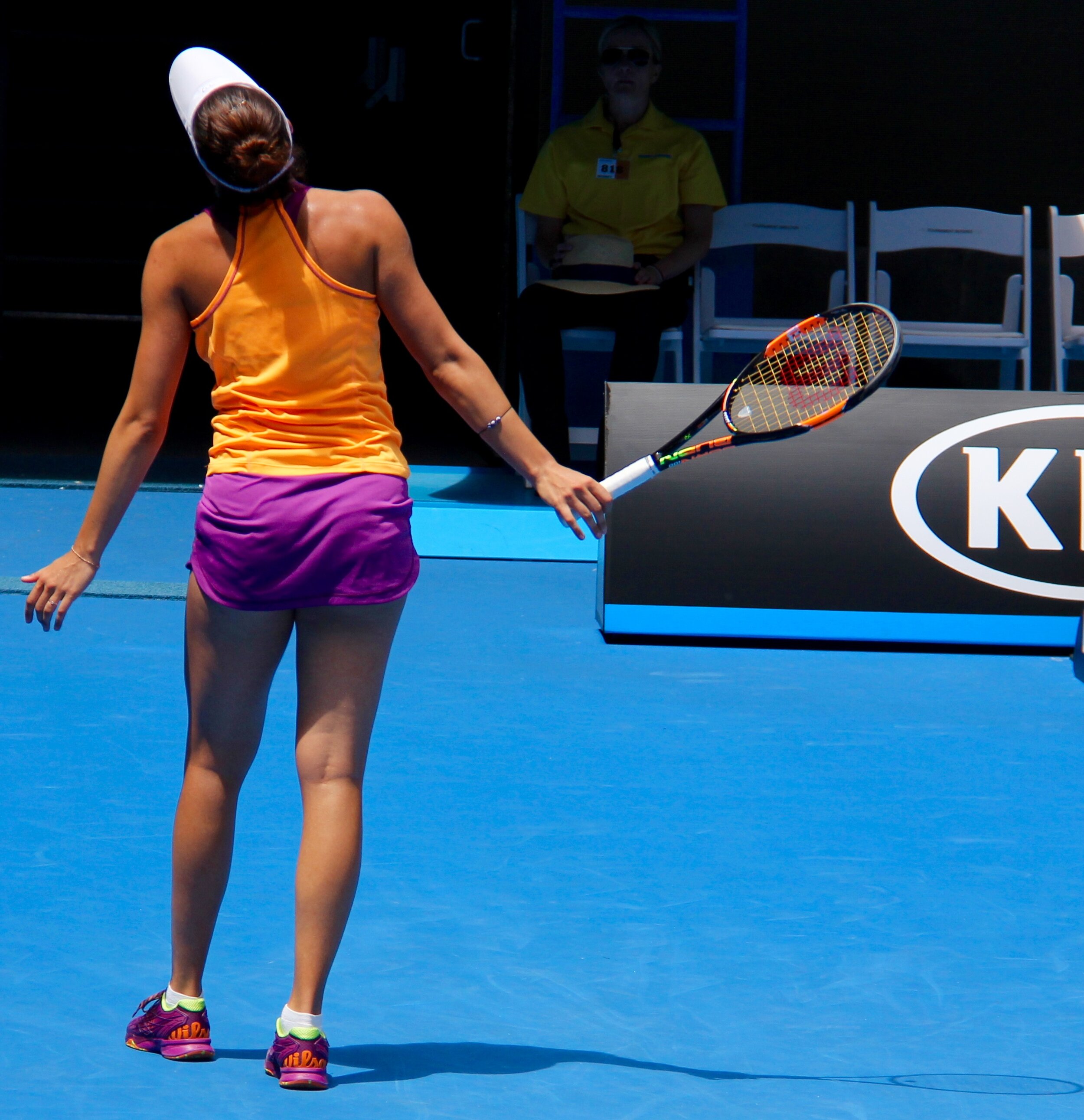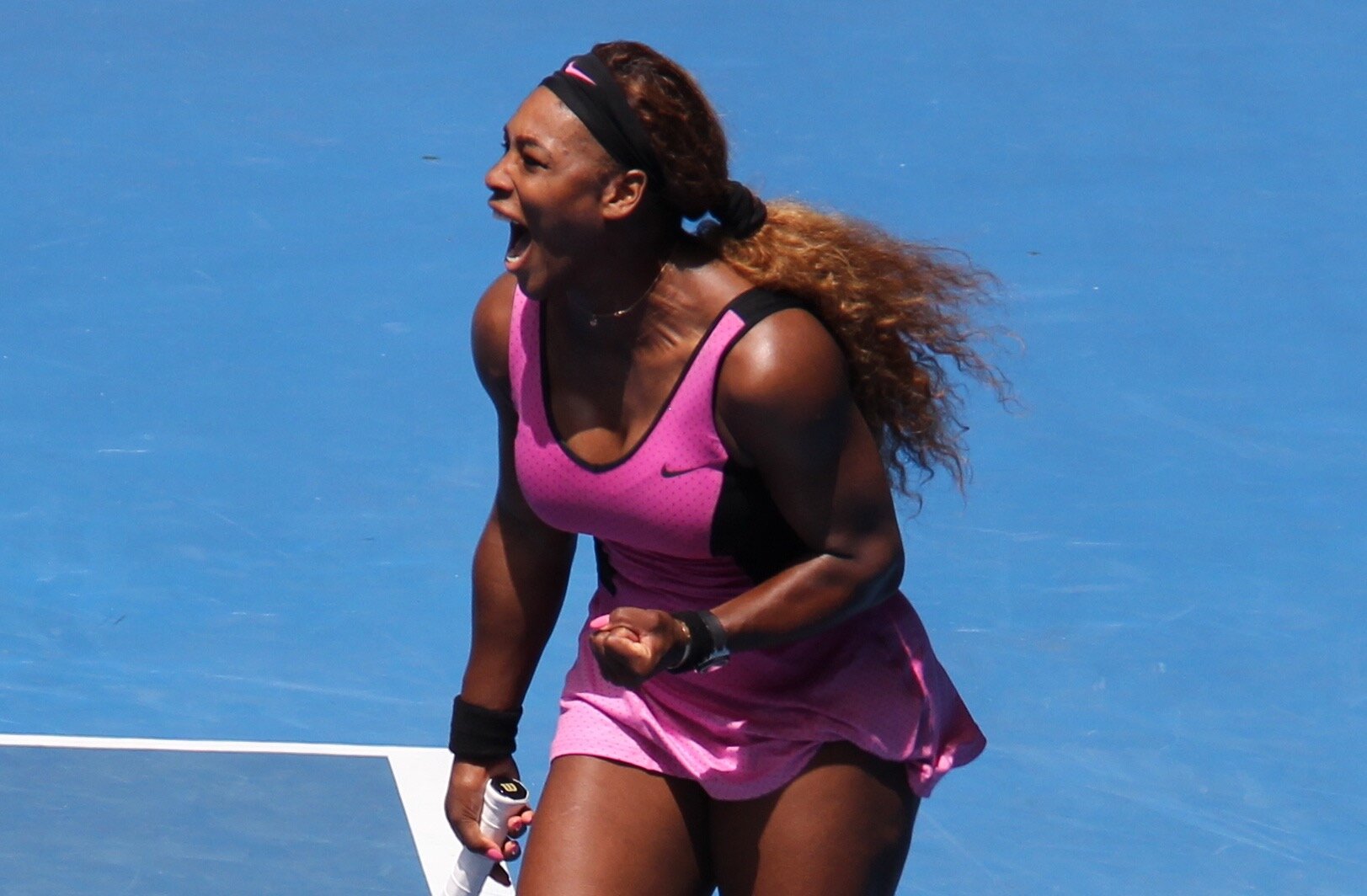How To Handle Pressure: 10 Tips from the Tennis Court
Pressure changes everything.
Some people, you squeeze them, they focus.
Others fold.Al Pacino in the film, “Devil's Advocate”
Sport is the ultimate in reality television, unscripted, often unpredictable, and in an individual sport like tennis, when the player is on the court, the pressure to succeed falls squarely on his or her shoulders.
Every year, tennis fans gather to witness who will triumph and who will crumble under the pressure.
Although most of us will not experience this kind of pressure on such a public stage, everyone can relate to the stress caused by the pressure that we put on ourselves to achieve our goals or that is demanded from us by our work or family or from the unexpected challenges that life often brings (we all know what that feels like). Let’s face it, even parallel parking can be a high-pressure situation for some of us!
We need some stress and pressure to perform at our best, but how do we perform at our best when the pressure is mounting?
How do you handle pressure?
Do you use it or lose it?
As an avid fan of tennis and as a clinical psychologist, the athletic talent and ability on display on the tennis court is absolutely awe-inspiring, but it’s how each individual player expresses the inner workings of his or her mind that is truly fascinating. Success is driven not only by physical prowess but also by the mental strength and mindset of the athlete. We can learn a lot by watching tennis players about how to succeed under pressure.
Here’s what I have learned by watching these athletes live and up close for over 25 years:
The Top Ten Tips from the Tennis Court
(and I saved the best for last!)
1. Pay attention to your thoughts.
Whether you succeed or fail often comes down to how you talk to yourself. Self-talk is key because your thoughts directly influence how you feel. It’s really easy to get bogged down with thoughts like:
“I suck”,
or
“I can’t cope with making a mistake”,
or
“They are so much better than me”.
You can tell when a tennis player is beating themselves up on the court through their body language, their facial expressions and often, verbal outbursts.
Self-defeating thoughts can include beliefs about yourself, such as "I can't do this", and negative and unrealistic perspectives on the situation, including striving for perfectionism. They can also include thoughts about how you perceive others' expectations or views of you, such as "everybody is counting on me" or "everyone is laughing at me".
Monitor your own thoughts in high pressure situations. Are you motivating yourself or putting yourself down? If you tend towards the latter, you can learn strategies to both accept and modify your thoughts and help you adopt a healthier mindset in pressure situations.
2. Have an approach mindset.
Avoidance breeds fear, whereas approaching anxiety-provoking, stressful and challenging situations fosters confidence, so face pressure head-on. Expose yourself regularly to a variety of pressure situations at home, work, and anywhere in between. If it goes well, you gain confidence, and if it doesn’t, you have the opportunity to develop resilience—so it’s a win-win!
3. Take a moment.
Notice how tennis players take a few breaths before serving. Relaxation and breathing techniques can ease the tension in your body before, during and after exposure to high-pressure situations. Taking a micro-break can help you refocus on what is important to get the job done.
4. Maintain healthy habits.
Even if you have the talent, knowledge and ability to deal with the high demands of work, life, or sport, sometimes the pressure can still get to you. If you have a balanced lifestyle that includes social support, a healthy diet, physical activity, and time to relax, you will be putting yourself in the best position to have the mental, emotional, and physical strength and energy to cope with stressful situations.
5. Stay in the present.
Be in the moment and don't overthink the outcome. Pat Rafter learned this the hard way. I had the pleasure of talking to Australian tennis great, Pat Rafter in December 2020, and I asked him what use to go through his mind in high-pressure matches. He reflected on his Wimbledon loss to Pete Sampras in 2000. He had won the first set and was 4-1 in the second, and in that moment, Rafter thought, “I’m going to win Wimbledon.” He was no longer in the present moment, and contemplating a possible win sent his body into overdrive. Rafter said that he felt his heart racing, and his game suffered from then on, leading to his loss to Sampras in four sets.
So the lesson is, stay focused on the task at hand so you can respond effectively to whatever happens in the moment.
Mindfulness is one way to practice staying focused in the present moment, in a nonjudgmental way, which can both keep you “in the zone” and help take some of the pressure off. Being mindful in the moment creates what athletes call, "flow", a state of being wholly absorbed in an activity that achieves optimal performance.
Rafael Nadal
6. Develop a ritual for facing pressure situations.
Tennis players often have rituals before each service, such as wiping their face, bouncing the ball a certain number of times, or doing a particular movement or gesture. Nadal is well known for his precise and long-winded pre-serve routine, but the recommendation for most is to keep your ritual simple and practical. Some ideas are to take a few breaths, read an inspirational quote, listen to a song (Lleyton Hewitt liked “Eye of the Tiger”), or do a short mindfulness exercise.
7. Create a strong, dedicated & reliable support system.
The number one factor in the development of resilience is close relationships. Tennis players have coaches, psychologists, skills trainers, and they often travel with their family members, partners or friends. We need to feel bonded to others for both our physical and mental well-being. Not only can your trusted family, friends and colleagues motivate you, support you, and mentor you, but they can also serve as your role models who display the skills and strategies that you want to use to learn, change and grow. How do people around you deal with pressure, expectations, public scrutiny or professional pitfalls? Watch and learn from both their successes and their mistakes.
8. Study yourself.
Effectively respond to pressure by putting in place what you need to succeed. There are core skills to deal with pressure that are likely to help everyone, but the important thing is to understand what would work best for you. For instance, for some tennis players, the most effective frame of mind is one that is really fired up, and for others, it is to be relaxed and calm. Remember, there is only one you. To effectively respond to pressure, put in place what you need to succeed.
Reflect on your previous experiences. Athletes are always reviewing their past performances to ascertain what will make them more effective in their next match. Ask yourself what were the conditions, both internally (in your mind and body) and externally (in the environment) when you were successful and when you were not. Then work out what you would do differently to improve the outcome next time.
9. Imagine coping with the situation.
One of the best ways to prepare for high-pressure situations is to visualise success. Visualising success by going through the motions in your mind is a powerful and effective tool to prepare elite athletes for their match-ups. Sit or lie down with your eyes closed and go through the whole scenario in detail ending with you successfully completing the task. Just do it!
10. Ask yourself, “It is worth it?”
Why are you in this situation?
Is this the path you want to take?
Is this an expression of your values?
Are you passionate about what you do?
The meaning you attach to what you do in your life has a significant impact on how you approach it, and ultimately can be the difference between failure and success.
In Andre Agassi's autobiography Open, he is unequivocal that tennis gave him no joy for the majority of his career. It wasn't until he was able to use his tennis skills to fund his foundation for education that he felt at peace with being a professional tennis player. It was "meaning" that led Agassi on the path of great success, both personally and professionally, in the latter part of his career.
Over his career, Nick Kyrgios openly commented about his struggles with motivation as a tennis player. The public has watched him struggle with his emotions and self-doubt on the court. Why is such a talented person struggling so much in his chosen field? It may have been because he wasn't convinced it was worth it.
Last year, Kyrgios started the campaign to raise money for bushfire recovery, pledging $200 per ace served during his summer of competitive tennis in Australia. His pledge spearheaded a tennis-wide Rally for Relief bushfires campaign that raised $5 million. Something else also happened. Tennis wasn’t just tennis anymore, it was now serving a greater purpose. This purpose gave tennis more meaning and this led to a more fulfilled and motivated player, and person in Kyrgios.
Purpose is what gets you out of bed, fosters passion, and it is what brings about joy and fulfilment. So when you're under pressure, you know it's worth it.
You can’t get rid of pressure, but you don’t have to let it get to you.
Identify what gives you a sense of purpose and to seek out opportunities to develop and practice the skills to respond to pressure situations confidently and effectively.
Now for some tennis!
Article & Photos by:
Dr. Lillian Nejad
Clinical Psychologist
Aussie Open Super-fan








